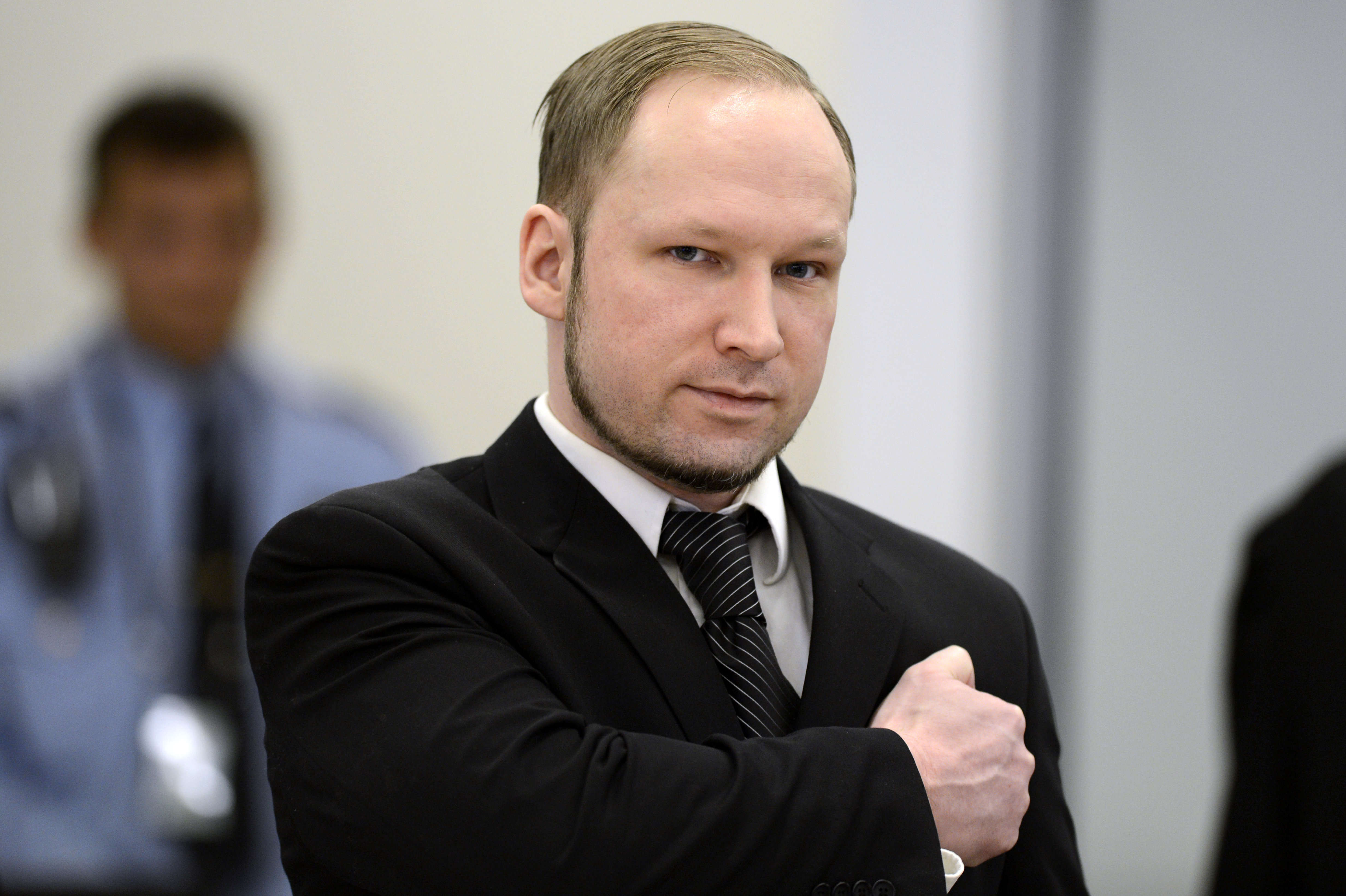While Anders Behring Breivik has confessed to having organised a bombing in Oslo and bloodshed at a nearby youth summer camp in 2011, he has refrained from admitting guilt for the crimes that he has been charged with in this connection. In the mind of the 33-year-old Norwegian - whose sanity has posed a central issue throughout the trial - his actions were necessitated by what he perceived as the threat of multiculturalism in Norway, and as such, he has requested acquittal.
Breivik was formally charged last March with acts of terror and voluntary homicide.
The attacks
About half past 3pm local time on July 22, 2011, a car bomb exploded outside of a government office complex in downtown Oslo. The blast killed eight and injured 30.
Shortly thereafter, around 5pm local time, Breivik arrived at Utoya Island, where the ruling Labor Party government was hosting a youth summer camp. At the time of Breivik’s arrival the island was filled with approximately 700 young adults ranging in age from 14 to 25. Breivik then opened fire, engaging in a killing spree that would last unabated for nearly 90 minutes, until police arrived. The massacre left 68 dead and 66 wounded.
A challenge to Norwegian society
Several days prior to the attacks, Breivik had posted on his Twitter account the following John Stuart Mill quote: “One person with a belief is equal to the force of 100,000 who have only interests.” He has made clear throughout the course of the investigations and proceedings launched against him his belief that the car bomb and the summer camp massacre were necessitated by the influxes of multiculturalism in Norway.
In a manifesto Breivik authored entitled “A European Declaration of Independence,” he proclaimed his belief that, “Multiculturalism (cultural Marxism/political correctness), as you might know, is the root cause of the ongoing Islamisation of Europe which has resulted in the ongoing Islamic colonisation of Europe through demographic warfare (facilitated by our own leaders).”
The manifesto goes on to emphasize the importance of targeting the weak in combating multiculturalism: “It is much more rational and pragmatical to focus on the easier unprotected targets instead of sacrificing good men on an impossible target,” thus providing some insight into why he may have chosen to carry out the unthinkable youth camp massacre.
Counter-intuitively, Breivik claimed later in court that he learned many tricks from Al-Qaeda, describing the group as, “the most successful revolutionary movement in the world.”
Procedural background
Breivik was arrested on Utoya Island once police arrived on the scene. A day later, Breivik reportedly confessed to having organized and carried out the twin attacks during a police interrogation.
Breivik was formally charged in March with acts of terrorism and voluntary manslaughter in a 19-page indictment.
Norwegian freelance journalist Fredrik Walløe, who has translated the indictment in full into English, explained to RAPSI the substance of the charges pending against Breivik as follows:
“Anders Behring Breivik is charged with two counts of terrorist acts under Norway’s formal terror law.
[He] is charged under § 147a of the Criminal Code, because the twin attacks ‘seriously disturbed a function of fundamental importance in society, like the legislative, executive or judicial power, energy supplies, secure supplies of food or water, bank- or money system or health system and disease control, and created serious fear in the population’.
There were murders in the first degree, with extremely aggravating circumstances.”
On April 16, 2012 - the first day of his trial - Breivik confessed to the killings, but pleaded not guilty to criminal charges, explaining that he had acted in “self-defense,” referring to his war on multiculturalism.
The central issue to be resolved during the course of the proceedings was that of whether Breivik is of sound mind. From the start, Breivik has insisted on his own sanity. RIA Novosti reported a week into the trial that Breivik had claimed he would do “anything” to avoid being committed to a psychiatric hospital. In a letter to Norwegian tabloid Verdans Gang, he lamented that being hospitalized would be a "fate worse than death".
The two psychiatric evaluations conducted on Breivik during the course of proceedings produced conflicting results. The first held that he was psychotic, thus prompting prosecutors to suggest he carry out his sentence in a psychiatric ward. The second held that he was of sound mind.
If he is found to have been of sound mind in carrying out the 2011 massacres, he faces up to 21 years in prison. In case his mental state is determined to have been unsound, he will spend the rest of his life in a psychiatric ward built especially for him.



